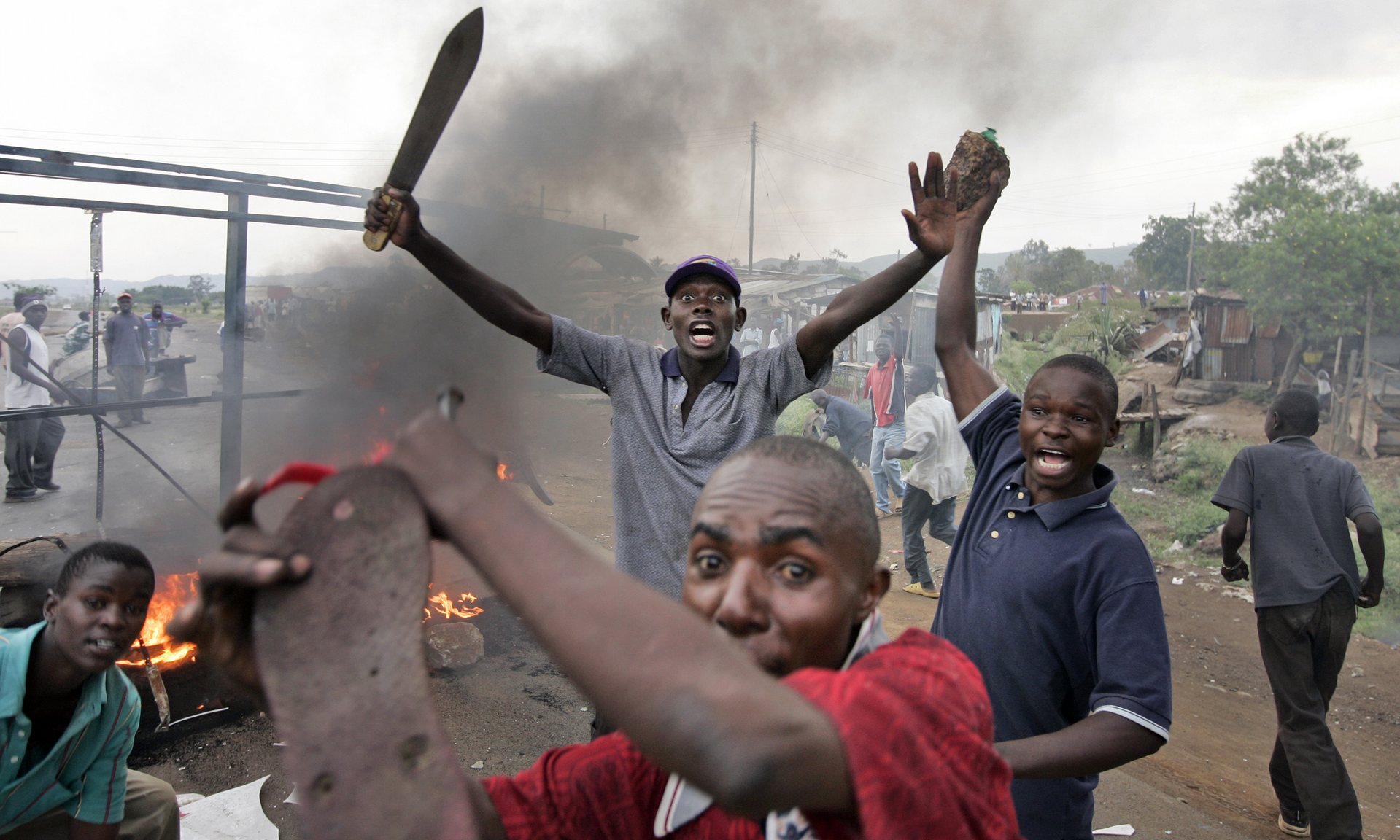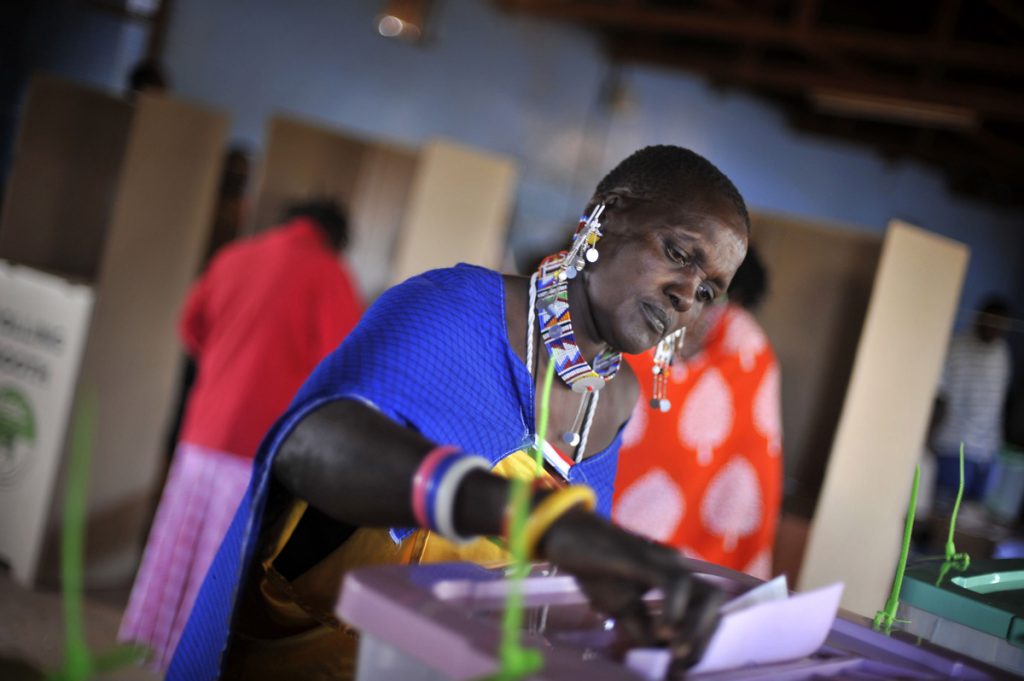
A crowd of elated young men danced outside the market in Kenya’s southern Kisumu city, waving the crisp new 200 shilling ($2) notes that a local politician was distributing from behind a dusty speaker that pounded out music.
Shoppers paid scant attention. Cash handouts are common during African elections; in Kenya, the devolution of power to 47 counties has made them ubiquitous in the run up to polls for president, parliament and counties due on Aug 8.
The counties, which manage local infrastructure, were introduced five years ago after a government-appointed international commission concluded power was too centralised in the country and partly to blame for violence that killed 1,200 people and crippled the economy following elections in 2007.
The process has been backed by international loans as a way to spread democracy and accountability within a vital Western ally. But devolution has also fuelled local corruption, officials and transparency campaigners say, and with it the prospect of more localised violence come election time.
The prize of county budgets worth billions of shillings mean this month’s party primaries for the county elections are hard-fought. Candidates often got into debt to try to buy votes, counting on future riches once in office.
Clashes have already broken out, and violent elections could threaten stability in a country that borders two others in turmoil: Somalia and South Sudan.
The interior ministry said on Monday that politically instigated violence had been recorded in 12 counties so far. “Politicians and their supporters have engaged in acts of violence, destroying property and creating disturbance in polling stations,” it said.
At least 14 civilians and four policemen have been killed in the drought-hit northern Laikipia region. A local politician is charged with inciting violence and arson after invasions of private land by cattle-herders and a spate of attacks on farmers and owners of safari parks.
Kenya’s ruling coalition annulled 21 county primaries held on Friday amid widespread anger over shortages of voting materials. It began rerunning them on Monday. The opposition will also rerun some primaries after allegations of rigging.
Rose Onyango, who was selling dried fish in the market near the rally in Kisumu last week, said three members of the county assembly and two aspiring governors had given out cash in the market over the past few days, hoping to win votes.
“We just had a woman aspirant an hour ago but she gave it to someone to distribute,” the 24-year-old said. “The crowd tore her clothes and the money was splashed everywhere.”
“SOMETHING TO FIGHT FOR”
Kenyans are haunted by the disputed 2007 presidential poll.
Dozens of men, women and children were burned alive in a church. Others were hunted down by machete-wielding gangs during the widespread ethnic violence that followed. More than half a million people fled their homes. Some never returned.
Protests also broke out after elections in 2013, but they were much smaller. A case at the International Criminal Court against powerful politicians, including President Uhuru Kenyatta, helped dampen violence.
That case has now collapsed. Kenyatta is running for a second term and his old nemesis Raila Odinga is building an opposition alliance. Odinga has said mass protests are possible if elections are rigged.
But this time it is not winner-takes-all. Devolution is designed, in part, to ensure there will be many winners.
“Devolution can defuse massive violence, although it can intensify it in individual counties,” said Titus Ogalo, head of the local anti-corruption Transparency International chapter.
“People feel, ‘Even if we lose the presidency, we have something to fight for at the local level’.”
The counties get around 20 percent of national revenues. They can also raise local taxes. In return, they must provide most health facilities, preschools, and local infrastructure.
Halakhe Waqo, CEO of the government-run Ethics and Anti-Corruption Commission, said mismanagement is rife. “Every procurement process is a problem. Funds are given to relatives, contracts are given to relatives and tribesmen,” he said.
Kisumu, Kenya’s third-largest city perched on the green shores of Lake Victoria, is Odinga’s stronghold, dominated by his Luo ethnic group. Residents complain the central government has neglected them for decades.
The port is choked by water hyacinth, stranding sun-bleached boats at the docks. The rusting railway has not seen a train for years, and the new international airport has no international flights. Football authorities have stopped holding international matches at the city’s stadium because of a rubbish dump nearby.
MUSCLE AND MONEY
Reuters interviewed more than two dozen voters: all supported devolution as a way of wresting power and resources from the central government. Many also complained that Kenya’s powerful Kikuyu tribe dominates that central government.
Devolution, some said, was already helping. Kisumu boasts a few new street lights, freshly erected cement market stalls, gravelled roads and newly painted clinics. Governor Jack Ranguma said he had given 530 schoolchildren bursaries and started a free ambulance service.
“I have many top achievements,” he said. “The investment in medicine and the investment in physical infrastructure is huge … but a lot of money still remains with national government. That’s a serious challenge that we have.”
Asked about vote buying, Ochien’g Obiero Philip, the governor’s director of political affairs, said many voters would not show up unless they received a cash payment.
“It’s something that the voters expect,” he said. “It is one of the challenges of democracy in Kenya. People expect handouts to be motivated to vote. It is widespread and the legal framework has never acted on it so it’s a loophole.”
Some Kisumu residents said construction was sometimes shoddy or projects sat unused, like the padlocked new clinic at Dunga beach where goats lounge on the porch. Ranguma said there was no money for staff. Locals said the contractor locked the clinic because he was not paid.
“Devolution has failed here because we have had bad leaders. Many just want the money,” said a doctor in the county hospital. He declined to be named for fear of repercussions.
Hotel receptionist Victoria Ochieng disagreed. “Do you think those people in Nairobi will do better?” she asked. “We used to have one president and now we have 47. The governor is our president … At least we can see him and make a request.”
Each governor makes around 14,000,000 shillings per year ($135,000), including perks, according to the International Budget Partnership (IBP), a global organisation that works with civil society groups to analyse budgets in developing countries.
A regular member of the county assembly makes about a third of that, still a premium on the average annual salary in Kenya of 134,000 shillings ($1,300). Officials justify the salaries by saying constituents often seek funds for events like funerals.
Many local legislators also take hefty travelling allowances; Kisumu’s lawmakers have travelled to Singapore and Dubai, among other places. Ranguma said they were learning about agriculture and devolution.
Waqo from the anti-corruption authority said it has charged more than 300 officials from various counties and is investigating more than 40 of the 47 governors. Charges have been brought against six.
After the counties got power and money, many feared violence could follow. “The governors are mini-presidents and those who have muscle or money have the advantage over those with a reputation for integrity,” said Kisumu political activist George Ogada. “If the situation does not favour them, then they would prefer to disrupt the election.”
Contestants in party primaries are already accusing rivals publicly of rigging.
“It starts as propaganda, then it takes on its own life. Each camp prepares to counter the other,” Ogada said. “There is a lot of hatred between the candidates.”
($1 = 103.3000 Kenyan shillings)
(Additional reporting by John Ndiso; editing by Philippa Fletcher)

